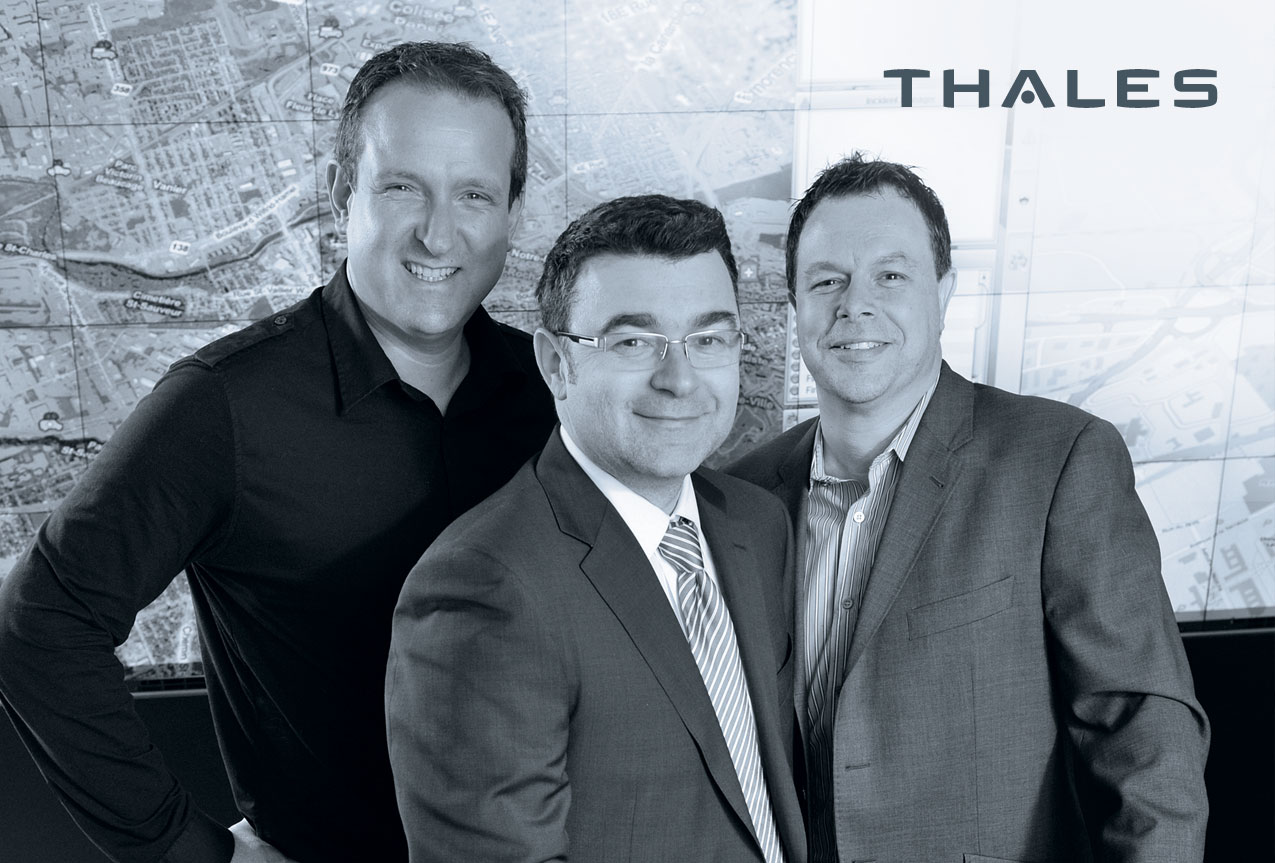“Command and Control” of the Human Mind: Technology Enables Fast and Effective Decision-making in High Pressure Environments

From left to right: Richard Breton (DRDC), Richard Grenier (Thales) and Sébastien Tremblay (Laval University)





SECURITY | SOFTWARE
A Prompt-Supported Team Applies ICT to Innovation in the Public Safety and Security Sector


Imagine….you are an aircraft controller who guides thousands of passengers to safety each day….a search and rescue commander who deploys teams to locate victims during a natural disaster…or an Emergency Room doctor who diagnoses and treats dozens of critically ill patients in a single shift. There are consistent and countless demands on you. And you are required to make life altering decisions and take action – often in seconds.
The personnel in these roles are trained to manage intense pressure, but they require targeted, timely and precise information to perform at an optimal level. Decision Support Systems (DSS) are interactive technologies that support this process by gathering useful information from different sources; monitoring, assessing and categorizing this data; and then helping users to identify and solve problems, and make decisions. With critical support from Prompt, Dr. Sébastien Tremblay, Professor of Psychology at Université Laval, aims to put these systems to work in “command and control” (C2) situations. Often associated with emergency response or military missions, C2 requires authoritative direction, reliable information, and the effective coordination of resources to achieve a goal. The question: can technology truly enhance our judgment and improve our decision-making capability?
To address this challenge, Dr. Tremblay is collaborating with Thales, a leading defence contractor and a major player in global civil and commercial markets, and Defence Research and Development Canada in Valcartier (DRDC), a federal agency of the Department of National Defence that responds to the scientific and technological needs of the Canadian Forces. Leveraging funding from Prompt, as well as the Natural Sciences and Engineering Research Council (NSERC) of Canada, the team aims to determine how DSS supports the human decision-making process, and develop metrics to evaluate its efficacy in C2 scenarios. The group will assess how this technology impacts three specific cognitive functions: situation monitoring; control and management; and activity coordination.
Using different simulations, DSS users will perform specific activities under observation in the lab. During this process, researchers will collect data about eye movement, gauge responsiveness and assess other behaviour throughout the decision-making process. “If we can understand the factors that influence human decision-making in high pressure situations, we can optimize how these systems support the user,” says Dr. Tremblay. “The metrics we produce will promote the development of DDS technology that helps skilled personnel make faster, better decisions.”
This multidisciplinary project demands expertise in engineering, psychology and cognitive sciences, and knowledge of the defence, aerospace and security sectors. According to Dr. Tremblay: “The funding provided by Prompt enabled us to assemble the right team. This includes leaders such as DRDC and Thales who brought an understanding of real world requirements, user needs, and applications for this technology. This enhances the commercial potential of our results and provides industry-calibre training for our students.”
“We are deriving significant value from our collaboration with Prompt, Université Laval and DRDC,” said Richard Grenier, Director of the Quebec Office at Thales Canada Inc. “This includes access to new research talent that extends our R&D capability, and novel ideas that could enhance our product offering. We invested in this project because of the synergy with our strategic direction, and the opportunity to leverage our R&D dollars. Prompt catalyzes innovation, enables productive collaboration and multiplies industry investment. We could not accomplish our objectives without this support.”
The outcomes of this project will be used by Thales and DRDC in future technologies and related R&D projects for the security, defence and aerospace sectors. They will also contribute to initial design guidelines for more effective DSS technology.

